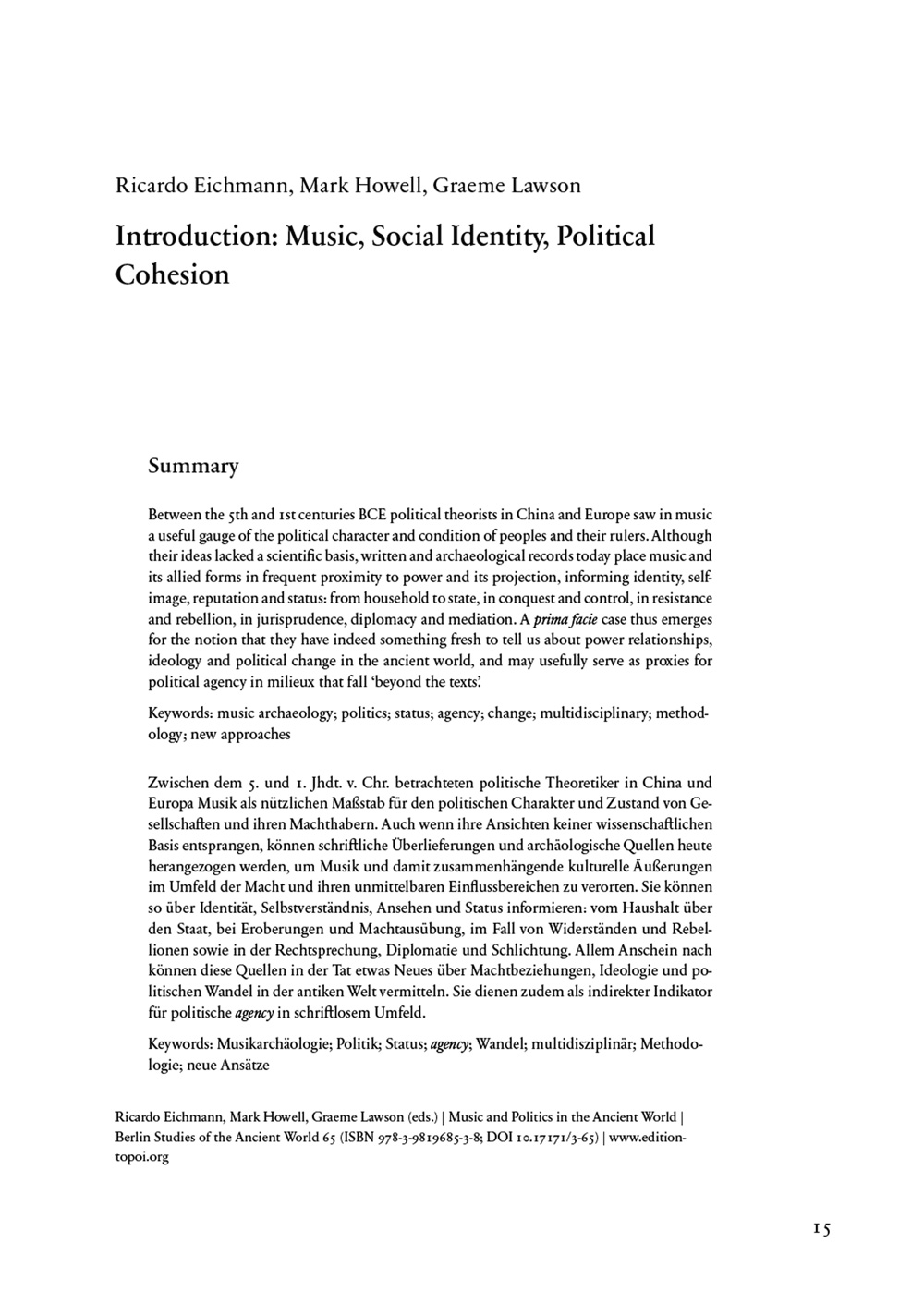Introduction: Music, Social Identity, Political Cohesion
Between the 5th and 1st centuries BCE political theorists in China and Europe saw in music a useful gauge of the political character and condition of peoples and their rulers. Although their ideas lacked a scientific basis, written and archaeological records today place music and its allied forms in frequent proximity to power and its projection, informing identity, selfimage, reputation and status: from household to state, in conquest and control, in resistance and rebellion, in jurisprudence, diplomacy and mediation. A prima facie case thus emerges for the notion that they have indeed something fresh to tell us about power relationships, ideology and political change in the ancient world, and may usefully serve as proxies for political agency in milieux that fall ‘beyond the texts’.
Zwischen dem 5. und 1. Jhdt. v. Chr. betrachteten politische Theoretiker in China und Europa Musik als nützlichen Maßstab für den politischen Charakter und Zustand von Gesellschaften und ihren Machthabern. Auch wenn ihre Ansichten keiner wissenschaftlichen Basis entsprangen, können schriftliche Überlieferungen und archäologische Quellen heute herangezogen werden, um Musik und damit zusammenhängende kulturelle Äußerungen im Umfeld der Macht und ihren unmittelbaren Einflussbereichen zu verorten. Sie können so über Identität, Selbstverständnis, Ansehen und Status informieren: vom Haushalt über den Staat, bei Eroberungen und Machtausübung, im Fall von Widerständen und Rebellionen sowie in der Rechtsprechung, Diplomatie und Schlichtung. Allem Anschein nach können diese Quellen in der Tat etwas Neues über Machtbeziehungen, Ideologie und politischen Wandel in der antiken Welt vermitteln. Sie dienen zudem als indirekter Indikator für politische agency in schriftlosem Umfeld.

